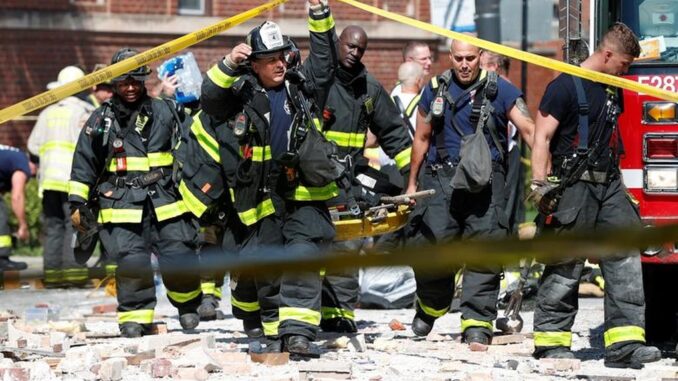
The Unflinching Hand of Fate: Why Stellaride’s Tragic Twist is Chicago Fire’s Necessary Reckoning
In the enduring landscape of long-running television dramas, few elements are as cherished and simultaneously perilous as the beloved power couple. They become the emotional bedrock, the “will they, won’t they” resolved, a beacon of stability amidst the weekly chaos. For NBC’s Chicago Fire, Kelly Severide and Stella Kidd – affectionately known as Stellaride – have long embodied this ideal. Their journey from hesitant colleagues to passionate lovers and finally, a fiercely devoted married unit, provided fans with a much-needed anchor in the high-stakes, life-or-death world of Firehouse 51. So, when news breaks of a showrunner explaining a “tragic twist” for Stellaride, the collective gasp from the fandom is palpable, immediately followed by the fervent question: Why? The answer, as the showrunner likely understands, lies in the crucible of narrative necessity: sometimes, to keep a story alive and vibrant, even its most precious pillars must be subjected to the fire. This shift isn’t just a plot device; it’s a strategic reinvention that promises to redefine the very heart of the series.
For seasons, Stellaride represented the epitome of romantic success within the dangerous profession of firefighting. Severide, the brooding, commitment-phobic rescue squad lieutenant, found his match in the fiercely independent, ambitious Stella Kidd. Their love story unfolded with painstaking detail, overcoming personal demons, professional jealousies, and the constant threat of their perilous jobs. Their eventual marriage felt like a hard-won victory, a testament to enduring love against all odds. They became Firehouse 51’s golden couple, a symbol of hope and stability for both their fictional colleagues and the show’s dedicated viewership. Their shared glances, unwavering support, and domestic bliss provided a comforting counterpoint to the explosions, medical emergencies, and psychological traumas that regularly beset the team. Disturbing this carefully constructed harmony is not a decision made lightly; it is a calculated risk, a narrative earthquake designed to shake the very foundations of the show.
The nature of this “tragic twist” itself is pivotal. While the specifics remain under wraps, the word “tragic” implies something profoundly devastating – not merely a spat or a temporary misunderstanding, but an event with far-reaching, potentially irreparable consequences. This could manifest in myriad forms: a career-ending injury to one, forcing a re-evaluation of their identity and purpose; a profound loss, such as a miscarriage or the death of a close family member that shatters their shared future; or even a devastating personal betrayal, a secret that threatens to dismantle their trust from within. Regardless of its exact manifestation, the twist’s purpose is to introduce an acute sense of vulnerability and change to a dynamic previously characterized by strength and certainty. It pulls the rug out from under not just Stellaride, but every character orbiting their orbit, and indeed, the entire narrative trajectory of Chicago Fire.
The showrunner’s explanation, therefore, isn’t an apology but a justification rooted in the art of long-form storytelling. The inherent danger of any successful, long-running drama is stagnation. Predictability, while comforting for a time, eventually erodes suspense and genuine emotional investment. If viewers know with absolute certainty that Stellaride will always prevail, always find their way back, the stakes surrounding their relationship diminish. A tragic twist, however painful, forces both characters and audience into uncharted emotional territory. It allows Severide and Kidd to grow beyond their established roles as the “perfect couple,” pushing them to confront new facets of grief, resilience, betrayal, or individual struggle. How do they cope with a loss that defines them? Can their love survive an ordeal that fundamentally alters one or both of them? These are questions that inject fresh tension and dramatic urgency into a series that, after many seasons, requires constant reinvention to remain compelling.
Ultimately, this “tragic twist” shifts everything around because it impacts every level of the show. For Stellaride themselves, it initiates a profound character arc, a period of rebuilding or potentially, even dismantling, that will redefine their individual and shared identities. For Firehouse 51, their tragedy becomes a collective burden, challenging the bonds of their found family. How will the team rally around them? Will it expose fissures in other relationships or forge new, unexpected alliances? The emotional landscape of the firehouse will undoubtedly darken, yet paradoxically, this allows for the exploration of new depths of camaraderie, support, and the sheer human capacity for endurance. For the audience, the shift re-engages them on a deeper, more visceral level. It rekindles a sense of genuine unpredictability, reminding them that no character, no matter how beloved, is truly safe from the unflinching hand of fate that dictates life in the fire service – and in television drama.
In conclusion, the showrunner’s decision to weave a “tragic twist” into the fabric of Stellaride’s story, while undoubtedly sparking dismay among fans, is a testament to the commitment to narrative vitality. It’s a brave, even ruthless, move designed to shatter comfort zones and force evolution. By embracing the challenging, the unexpected, and yes, the tragic, Chicago Fire ensures that its characters, its stories, and its emotional resonance remain potent and relevant. This isn’t just a plot twist; it’s a fundamental recalibration, a necessary shock to the system that ensures Firehouse 51, and the captivating lives within it, continue to burn brightly for seasons to come. The question now isn’t just what the twist is, but how Severide and Kidd – and the entire Chicago Fire universe – will rise from its ashes.
